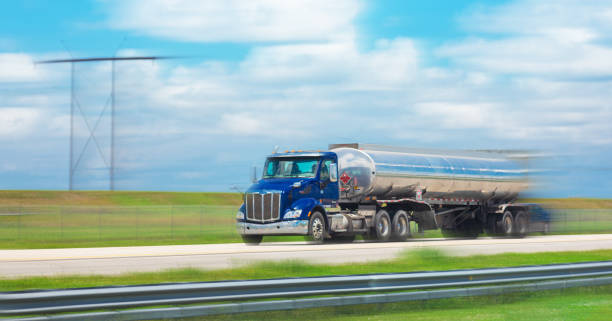Driving Forward: Propane Autogas in an Ever-Changing Landscape

In recent years, stakeholders in the industry have faced many challenges as they transitioned to propane autogas. Despite the wild ride, the Propane Education & Research Council (PERC) emphasizes that autogas currently has the lowest total cost of ownership for fleets of vehicles. Additionally, the increase in the price of gasoline and diesel has highlighted the financial benefits of switching to this plentiful, affordable, and low-carbon fuel.
The ambitious regulations California has set forth to phase out internal combustion engine vehicles by 2035 may cause some people to have second thoughts. Still, Tucker Perkins, president and CEO of PERC, is unwavering in his optimism. The primary focus of the California law is on passenger cars, leaving the medium- and heavy-duty fleet sector—the ideal market for propane autogas—with a sizable untapped market.
Perkins emphasizes the value of considering roadblocks and ignoring details when assessing alternative fuel options. He assertively compares autogas to electric vehicles (EVs), highlighting the benefits autogas offers in terms of cost-effectiveness, payload capacity, extended range, and reliability.
There are opportunities and challenges for the propane industry related to federal infrastructure and inflation legislation. Because of the infrastructure law, funding options are now available for using propane in fleet and school bus applications. The inflation legislation also extended the alternative fuel tax credit, but it still needs to be determined what will happen after 2024. Congress could favor a clean fuel reduction credit, but it might not be as advantageous for traditional propane as the current tax credit.
In response to impending strict emissions mandates, Perkins sees the market for autogas growing by displacing harmful diesel. With a focus on both on- and off-road applications, including propane-fueled bobtails, Cummins is continuously developing new propane engine technology to ease this transition.
Success tales demonstrating autogas’ effectiveness are still being published. Significant advantages have been realized by school buses, paratransit shuttles, and mail delivery companies. The Americans with Disabilities Act requires paratransit services, but the United States Postal Service relies on independent contractors nationwide to deliver mail. To balance the unilateral push toward electrification, these success stories provide strong evidence.
The industry is ready to offer fleets the autogas option they deserve, thanks to the availability of technology, solutions providers, and a plentiful propane supply.
















